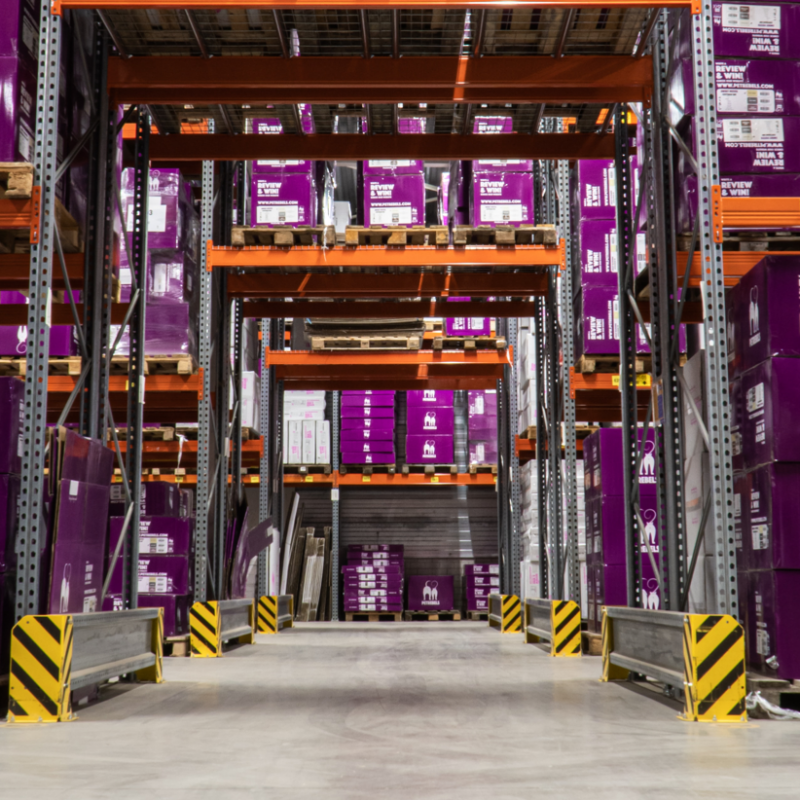If you’re an e-commerce business owner, then you already know that logistics play a vital role in your success. Efficient logistics can help you reduce costs, improve delivery times, and increase customer satisfaction. On the other hand, poor logistics can lead to delivery delays, customer complaints, and lost sales.
In this article, we’ll explore the best practices and tips for logistics in e-commerce. We’ll cover everything from order fulfillment to delivery and returns, and provide you with actionable steps to help you improve your logistics operations.
The Importance of Logistics in E-commerce
Logistics is the backbone of any e-commerce business. It involves the movement of goods from the warehouse to the customer’s doorstep. Logistics is responsible for everything from order processing and inventory management to packaging and shipping.
Here are some reasons why logistics is critical to e-commerce success:
Faster Delivery Times
One of the biggest advantages of efficient logistics is faster delivery times. Customers today expect their orders to arrive quickly, and e-commerce businesses that can’t keep up with these expectations will lose out to their competitors.
By optimizing your logistics operations, you can reduce delivery times and provide your customers with a better experience.
Improved Customer Satisfaction
Logistics also plays a significant role in customer satisfaction. A smooth delivery process can create a positive impression of your business, while delays and mistakes can lead to negative reviews and lost customers.
By improving your logistics operations, you can provide your customers with a seamless experience, which can lead to repeat business and positive word-of-mouth.
Reduced Costs
Efficient logistics can also help you reduce costs. By optimizing your inventory management and shipping processes, you can reduce waste and minimize the need for expedited shipping.
Reducing costs can help you improve your profit margins and reinvest in your business.
Best Practices for Logistics in E-commerce
Now that we’ve covered the importance of logistics in e-commerce, let’s take a look at some best practices you can implement to improve your operations.
1. Automate Your Processes
Automation is one of the most effective ways to streamline your logistics operations. By automating tasks like order processing and inventory management, you can reduce errors and speed up your delivery times.
Automation can also help you reduce costs by minimizing the need for manual labor and increasing efficiency.
2. Use a Reliable Shipping Carrier
Choosing the right shipping carrier is crucial to your logistics operations. You want to work with a carrier that can provide reliable service at a reasonable cost.
Before choosing a carrier, make sure to research their delivery times, pricing, and customer service. You may also want to consider using multiple carriers to provide your customers with more shipping options.
3. Optimize Your Packaging
Packaging plays a crucial role in the delivery process. Poorly packaged items can arrive damaged or broken, leading to customer complaints and returns.
To optimize your packaging, make sure to use sturdy boxes or envelopes and sufficient cushioning. You may also want to consider using eco-friendly packaging materials to appeal to environmentally-conscious customers.
4. Offer Order Tracking
Order tracking is a must-have feature for any e-commerce business. It allows your customers to monitor their orders and provides them with peace of mind.
Make sure to provide your customers with a tracking number and a link to the carrier’s website. You may also want to consider sending automated updates via email or text message.
5. Provide Easy Returns
Returns are an inevitable part of e-commerce, but they don’t have to be a headache. By providing easy returns, you can create a positive impression of your business and encourage repeat business.
When initiating a return, make sure to provide your customers with a prepaid shipping label and clear instructions for returning the item. You may also want to consider offering a refund or exchange, depending on your policy.
6. Monitor Your Inventory
Inventory management is a critical aspect of logistics in e-commerce. By monitoring your inventory levels, you can ensure that you have enough stock to fulfill orders without overspending on storage costs.
Make sure to track your inventory levels regularly and use automated alerts to notify you when stock is running low. You may also want to consider using software to manage your inventory more efficiently.
Tips for Optimizing Your Logistics Operations
In addition to best practices, there are several tips you can use to optimize your logistics operations further.
1. Use Analytics to Track Performance
Analytics can provide valuable insights into your logistics operations. By tracking metrics like delivery times, order accuracy, and returns, you can identify areas for improvement and make data-driven decisions.
Make sure to use analytics software to monitor your performance regularly and adjust your operations accordingly.
2. Optimize Your Warehouse Layout
The layout of your warehouse can significantly impact your logistics operations. By organizing your inventory strategically, you can reduce the time and labor required to fulfill orders.
Make sure to design your warehouse layout with efficiency in mind. Consider factors like the frequency of item retrieval, the size of your inventory, and the flow of goods through your warehouse.
3. Use Cross-Docking to Speed Up Delivery
Cross-docking is a logistics technique that involves unloading goods from one truck and loading them directly onto another truck for delivery. By skipping the storage process, cross-docking can significantly reduce delivery times.
Consider using cross-docking for time-sensitive items or high-volume orders to speed up your delivery times and improve customer satisfaction.
4. Partner with Third-Party Logistics Providers
Third-party logistics providers (3PLs) can help you streamline your logistics operations by handling tasks like warehousing, transportation, and order fulfillment.
By outsourcing these tasks to a 3PL, you can focus on your core business activities while still providing your customers with a high level of service.
5. Use Predictive Analytics to Forecast Demand
Predictive analytics can help you forecast demand for your products and adjust your logistics operations accordingly. By analyzing data like sales trends, seasonal fluctuations, and market conditions, you can predict future demand and plan your inventory and shipping accordingly.
Make sure to use predictive analytics software to analyze your data and make data-driven decisions about your logistics operations.
The Role of Logistics in E-commerce Success: Best Practices and Tips
In conclusion, logistics plays a vital role in the success of any e-commerce business. By optimizing your logistics operations, you can reduce costs, improve delivery times, and increase customer satisfaction.
To optimize your logistics operations, make sure to implement best practices like automation, reliable shipping, optimized packaging, order tracking, easy returns, and inventory management. Additionally, use tips like analytics, warehouse layout optimization, cross-docking, 3PL partnerships, and predictive analytics to improve your operations further.
By following these best practices and tips, you can provide your customers with a seamless experience and position your e-commerce business for success.
FAQs
Q: What is logistics in e-commerce?
A: Logistics in e-commerce refers to the movement of goods from the warehouse to the customer’s doorstep. It involves tasks like order processing, inventory management, packaging, and shipping.
Q: Why is logistics important in e-commerce?
A: Logistics is critical to e-commerce success because it impacts delivery times, customer satisfaction, and costs. Efficient logistics can reduce delivery times, improve customer satisfaction, and reduce costs, while poor logistics can lead to delays
, customer complaints, and lost sales.
Q: What are some best practices for logistics in e-commerce?
A: Some best practices for logistics in e-commerce include automation, reliable shipping, optimized packaging, order tracking, easy returns, and inventory management.
Q: What is cross-docking in logistics?
A: Cross-docking is a logistics technique that involves unloading goods from one truck and loading them directly onto another truck for delivery, skipping the storage process.
Q: What is a 3PL in logistics?
A: A third-party logistics provider (3PL) is a company that provides logistics services like warehousing, transportation, and order fulfillment to other businesses.
Q: How can analytics help with logistics in e-commerce?
A: Analytics can provide valuable insights into logistics operations by tracking metrics like delivery times, order accuracy, and returns. This data can be used to identify areas for improvement and make data-driven decisions.
Q: Why is inventory management important in e-commerce logistics?
A: Inventory management is essential in e-commerce logistics because it ensures that you have enough stock to fulfill orders without overspending on storage costs. It also helps you track sales trends and predict future demand.
Conclusion
In conclusion, the role of logistics in e-commerce success cannot be overstated. Efficient logistics operations can reduce costs, improve delivery times, and increase customer satisfaction, while poor logistics can lead to delays, complaints, and lost sales.
To optimize your logistics operations, make sure to follow best practices like automation, reliable shipping, optimized packaging, order tracking, easy returns, and inventory management. Additionally, use tips like analytics, warehouse layout optimization, cross-docking, 3PL partnerships, and predictive analytics to improve your operations further.
By implementing these best practices and tips, you can provide your customers with a seamless experience and position your e-commerce business for success.



